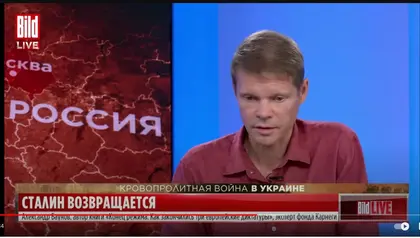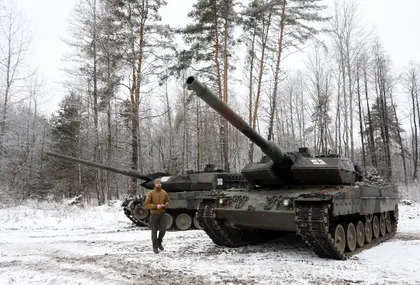A Russian international policy expert, publicist, and former diplomat opposed to the Putin regime says that after the failure to crush Ukraine, the Kremlin’s decision makers are “in the grip of destructive emotions, obsessed with grievances and fixated on revenge.” This has “reduced their ability to play a constructive role in the Middle East.”
Writing in the Financial Times on Nov. 5, Alexander Baunov, a senior fellow at the Carnegie Russia Eurasia Center, Berlin and visiting fellow at the European University Institute, Florence, argues that “while conducting its aggressive geopolitical game, the Kremlin has overlooked the consequences at home. Its intense anti-western sentiment has generated violence in the north Caucasus which contradicts the image of domestic harmony that Putin aims to project.”
JOIN US ON TELEGRAM
Follow our coverage of the war on the @Kyivpost_official.
The expert notes that under President Vladimir Putin Russia has “fundamentally changed its foreign and domestic policy.”
He recalls that “After 9/11, Putin was the first foreign leader to phone his US counterpart, George W Bush, to express his condolences.” But Rusia’s debacle in Ukraine has altered the Kremlin’s approach both to the Arab-Israeli conflict and antisemitism at home.
Baunov observes: “By disputing Ukraine’s right to exist, Russia is acting as the arbiter of and successor to the Soviet and tsarist empires. Their legacy includes friendships with Arab states, directed against Israel and the west, and unofficial antisemitism in Soviet institutions that marked out domestic opponents in ethnic and cultural terms. This is not to mention the pogroms of the late tsarist era.”

‘I Refuse to Be Their Puppet’ – Trump’s Intel Chief Pick Faces Tough Questions About Russian Sympathies
The anti-Kremlin Russian specialist concludes that: “After the failure of Russia’s blitzkrieg attack on Ukraine in early 2022, the Kremlin became consumed with the idea of opening a second front. It tried a gas front against Europe last winter, and a grain front stoking fears of world food shortages and migration crises. It hoped for a flare-up over Taiwan, or domestic political problems in the US.”
Now, Baunov cautions, Moscow may hope to propose a bargain to the West: “We’ll help you get out of the mess in Palestine, you help us do the same in Ukraine.”
You can also highlight the text and press Ctrl + Enter










